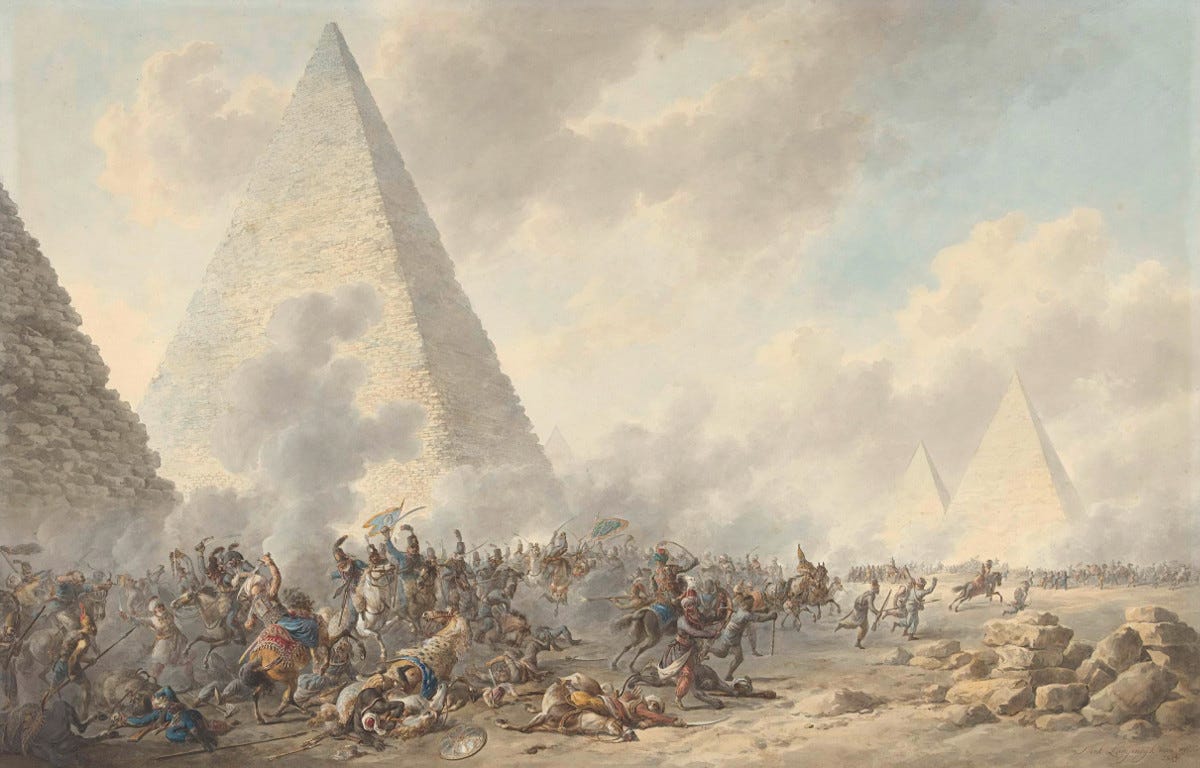Hard times create strong men, strong men create good times, good times create weak men, and weak men create hard times.
-- G. Michael Hopf
If, reading the title, you wonder whether it’s in any way connected with the tragedy of the commons, you’re on the right track! If you’ve never heard about the tragedy of the commons, check this short TED-ED video. Or if you think the commons make sense, reassure yourself with this. And if you know a lot about it (and about the tragedy of the private), jump to the last title below …
The story of the tragedy of the commons is often oversimplified to a black-and-white dichotomy: the common is invariably bad, and the private can only be good. The advocates of neoliberal privatization claim that common assets are sure to be misused and that private property is bound to be well-managed and maintained.
However, if you carefully scrutinize how communities managed their commons throughout history you’ll see that they generally took particularly good care of their shared property over long periods of time. Resources were, after all, a matter of survival, and squandering them would be catastrophic. As the commons became more complex, the systems of managing them became complex too, but this hasn’t made them any worse. Elinor Ostrom was awarded The Nobel Memorial Prize in economics for demonstrating the successful management of common property.
In August 2023, I visited friends in a village in Sierra Nevada close to Granada. The summer drought in the south of Spain with temperatures hitting as high as 46 C (115 F) and most precipitation concentrated in a few months of the year, forced the people to manage water resources with extreme prudence. For more than a thousand years there has been an intricate system of channels, known as acequias de carreo, that is managed by a number of communities on the slopes of the mountain. Everyone has a small private reservoir that gets replenished weekly from the public system. My friends explained how there are catchments and water gates and a precise schedule for when someone goes to open and close the water to a particular section for an allocated time. Their part of the village gets the water for one hour weekly and the amount is more than enough for their needs.
This is an example of meticulous planning, managing, and monitoring. If someone breaches agreements, the community deals with it promptly. Most importantly, there are (or were) practically no externalities—the adverse effects of abusing the system couldn’t be “exported” far enough, and all potential risks have to stay internalized. The main flaw of the system is waste water that accumulates in a stinky pond down in the valley. This was less of a problem in the past, but nowadays with all the chemicals in products, it poses a threat and will have to be dealt with one way or another.
Commons like this have been in operation for millennia and yes, they have flaws and some tragedies happen too, but communities are learning how to avoid them. And what can be said about the benefits and the harms of privatization?
The tragedy of the private
Private owners have an interest in managing their property with just the same, or even greater care and efficiency than the users of the commons, so say the proponents of privatization. As much as this may be true within the boundaries of private property, they fail to recognize that only too often the care disappears at the point where the private property ends, and the more impersonal the owner (i.e. a multinational corporation) the less likely it is to be able to care.
On the other side, rivers, seas, forests; deposits of gas, oil, minerals, and metals; energy, transportation, health, and education infrastructure—are too abstract to be cared for as you care for a particular tree, beach, necklace, animal or person. Managing such broad resources has to have a common good component and utmost care has to be taken for the externalities to be minimized.
The private sector draws basic resources from some non-private spheres and operates on a lot of infrastructure that has been built and managed as commons. The boundary between the private and the common is blurry and broad. It’s tempting to take advantage of the infrastructure, suck the profits out of it and avoid investments to maintain it. When it starts breaking down, it’s convenient to shrug your shoulders, declare bankruptcy, and return the wrecked infrastructure to the government or the community to patch it up with their investment. And once it’s fixed hijack it again. The story of the failed privatization of the UK railways is very instructive and so is the story of mismanaged water damaging communities.
Since the 80s, when the large-scale privatization began, the new owners of the previously public infrastructure and services had more than enough time to prove their supposed superiority, but as it turns out, they failed and had to be bailed out by governments. The dark side of privatization is documented in hundreds of papers, books, and documentaries (such as The Corporation and its sequel The New Corporation). Time and time again the privatization of large-scale social services keeps disappointing.
Reading this, friends of capitalism might label me as an enemy of the West, a commie, an advocate of government control over everything, and zero freedom for private enterprise. That’s not what I advocate for, and even though I criticize privatization, I don’t see how society could function without the private sector. It is important and must be protected, but so should the commons.
I grew up in a communist country and I know how bad it can turn out when you nationalize everything with the government yielding too much power where it shouldn’t. I also saw good practices of shared ownership and management of both firms and social institutions. There can be a good balance between commons and private enterprises with certain functions and services naturally fitting better on either side. A democratic government ensures that the commonly agreed organizational principles of a society are followed and enforced at the national level. Wherever the public and the private sectors end up competing, the government should provide some kind of arbitrage.
The goal is (or should be) to secure the best possible management of assets and resources at each scale. To do this, the private and the public must work together towards the common good.
Everyone needs to be held accountable in the case of failure and adequate measures ought to be taken to prevent future demise. We need effective multinational governance to constrain multinational corporations and protect the common good. As I write this, Gandhi’s words come to mind: “The world has enough for everyone’s need but not for everyone’s greed.”
The pandemic of cowardice
Ironically, the laissez-faire economy, by liberating the market and restricting the power of the government during the 80’s and the 90’s, became a textbook example of exactly the tragedy of the commons that it mocked. The laissez-faire market is like the unregulated common pasture and the owners of property and assets, free to avail of it pretty much as they want, end up exhausting the “pasture.” The issue is that they don’t manage it jointly for the common good, but instead compete for the limited resources and often push it beyond its regenerative capacities.
In the age of corporations, the global civilization prospered, yes. The question remains who, when, and how is going to pay the dirty cost of externalities? Some future generations will have to deal with this cost and for as long as we keep ignoring it, it will keep increasing.
Thus, I make it to the gist of the essay: the tragedy of the cowards.
An epitome of cowardice is believing that you can get away with misconduct and never have to face negative consequences. It’s cowardly to lie, cheat, take advantage of others. It’s just as cowardly to tolerate being the butt of mistreatment. And it’s cowardly to silently observe the wrongdoings. As Yehuda Bauer said: “Thou shalt not be a victim, thou shalt not be a perpetrator, but, above all, thou shalt not be a bystander.”
I don’t know about you, but I find the sly abuse of resources and people cowardly and morally bankrupt. It is cowardly to earn billions and then surround yourself with electric fences and bodyguards. It is cowardly to shrink down and not develop your inner gifts to their full potential. It is cowardly to do anything mechanically, without awareness, whether chain-smoking, chain-drinking, chain-masturbating, chain-you-name-it.
It is cowardly to run along everyone else even as a few individuals are running in the opposite direction having seen what lies ahead. It is cowardly to cling to dreary traditions and to resist enlightenment. It is cowardly to waste your life, harm yourself, and sink into self-pity. It is cowardly to look for excuses. It is cowardly to ignore warnings of threats screaming you in the face.
Whether you look around, look at your screens, or just look in the mirror, the faces you see are those of cowards. With cowards dominating, society will always end up in some kind of tragedy.
Private or commons is a false dichotomy, we should instead look at cowardice and courage. Brave people, honest and modest, will do all they can to find the best possible organization of resources, infrastructures, and services for the common good—at a scale that they can impact. They won’t indulge in obscene luxury as long as even one person around them starves.
Rampant cowardice debilitates humanity. That’s what we should acknowledge and start building courage by facing our own fears and then helping others do the same. That should help us resolve the tension between privatization and commoning.
Now, to wrap it up, I decided to borrow the words of people much smarter and probably braver than me, to put our fears into perspective and calibrate our moral compasses.
Much advance publicity was made for the address the Master would deliver on The Destruction of the World and a large crowd gathered at the monastery grounds to hear him.
The address was over in less than a minute. All he said was:
“These things will destroy the human race: politics without principle, progress without compassion, wealth without work, learning without silence, religion without fearlessness and worship without awareness.”
– Anthony De Mello
Our deepest fear is not that we are inadequate. Our deepest fear is that we are powerful beyond measure. It is our light, not our darkness, that most frightens us. Your playing small does not serve the world. There is nothing enlightened about shrinking so that other people won't feel insecure around you. We are all meant to shine as children do. It's not just in some of us; it is in everyone. And as we let our own lights shine, we unconsciously give other people permission to do the same. As we are liberated from our own fear, our presence automatically liberates others.
-- Timo Cruz in "Coach Carter" movie (Originaly from a poem by Marianne Williamson and qouted by Nelson Mandela in his inauguration speech in 1994)






